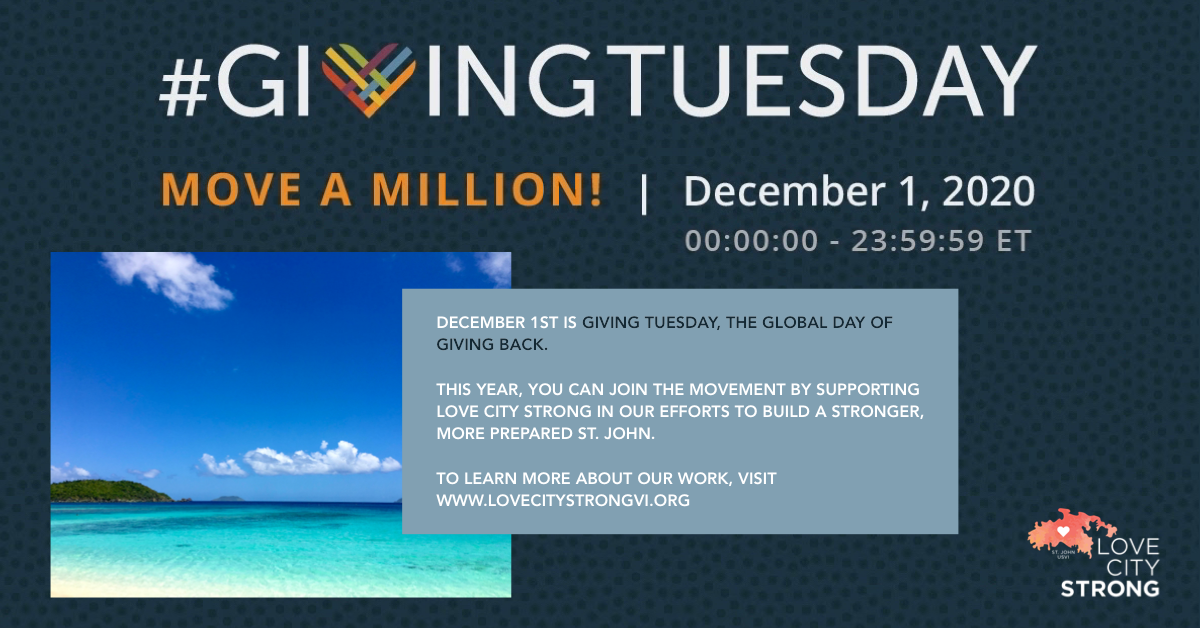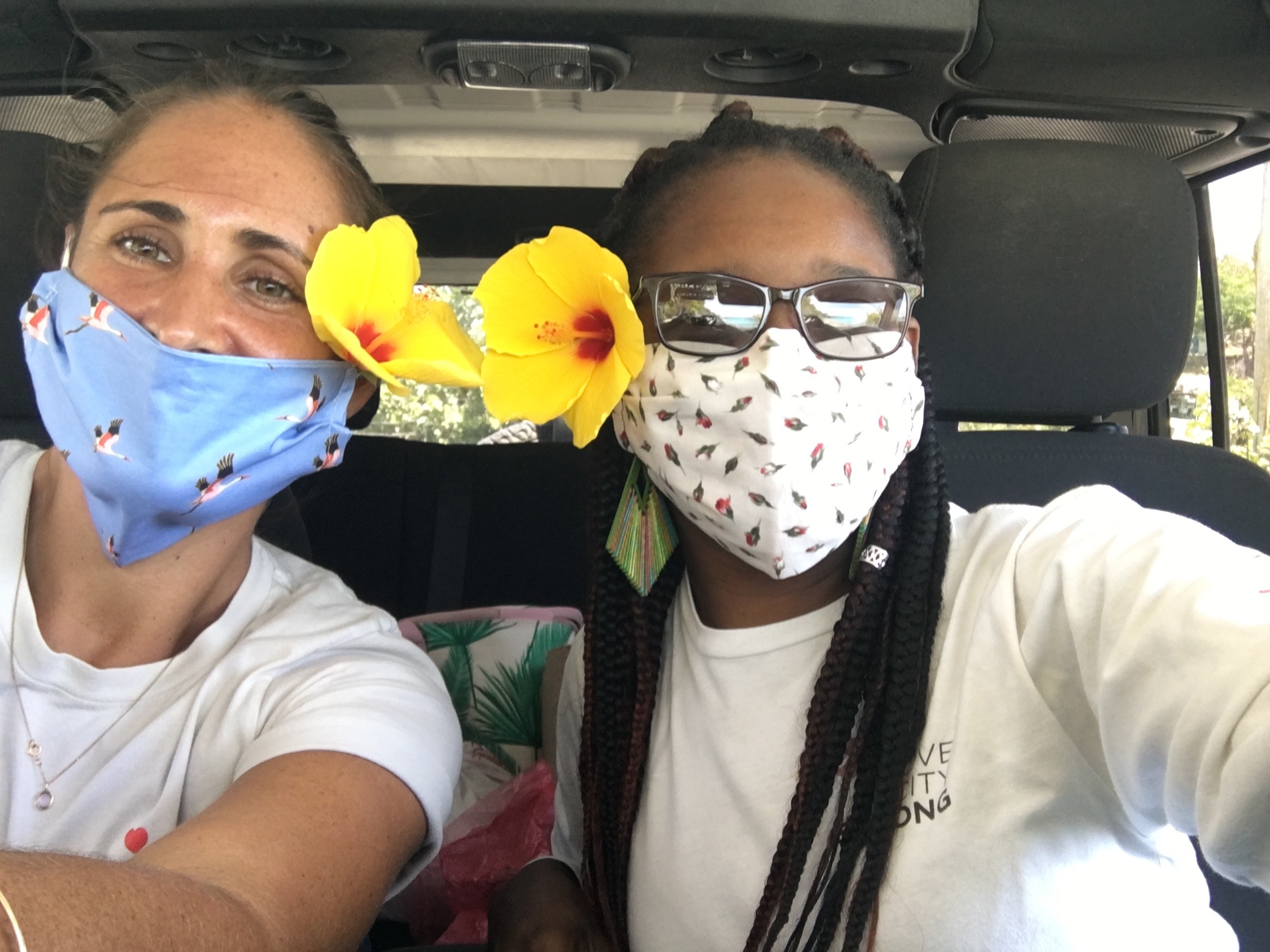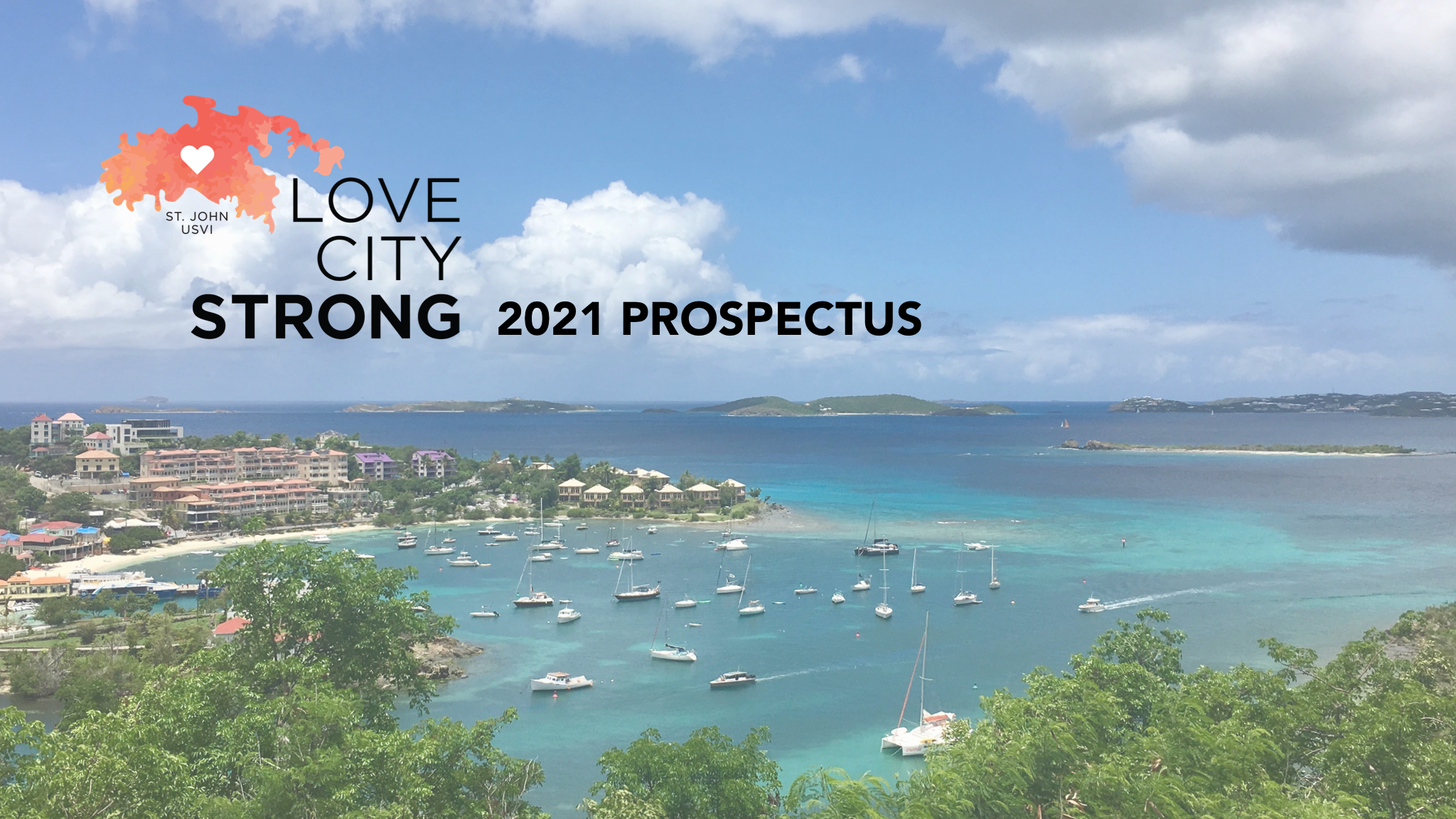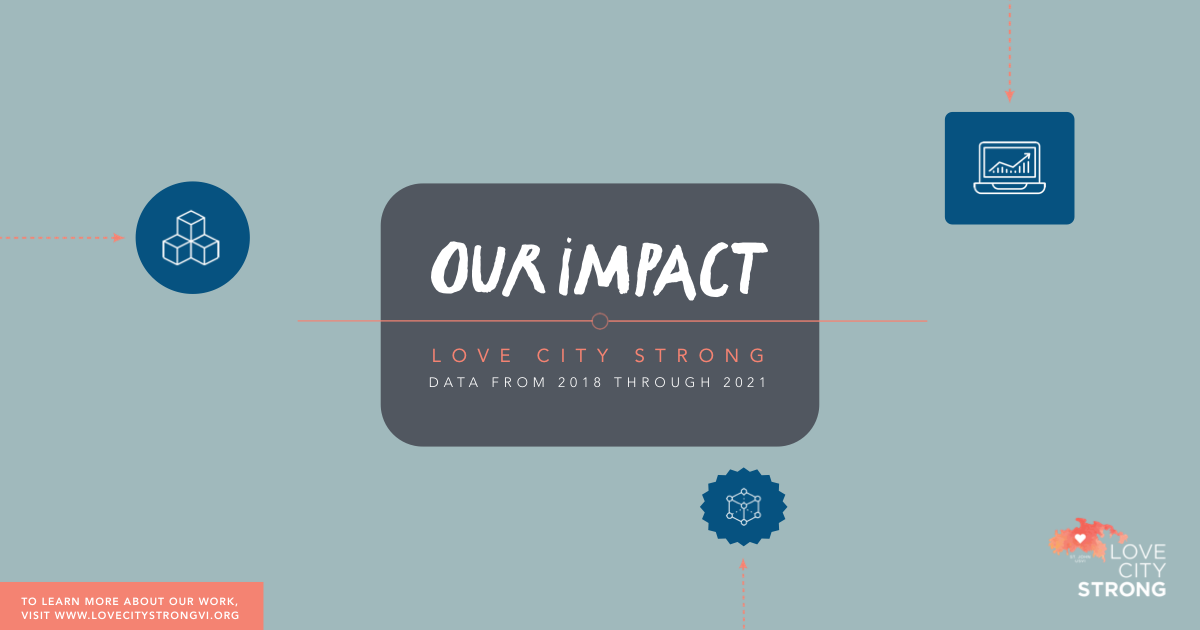
- Rebuilt 36 homes.
- Installed 70 water filtration systems, serving 223 people. As a result, we replaced the consumption of 2,680 plastic water bottles per month.
- Remediated mold in over 100 homes.
- Made or replaced 200 address signs for seniors and families.
- Pre-staged MREs and boxed water across the island to last 5,000 people for one week after a disaster.
- Delivered sandbags to an average of 75 seniors per year.
- Trained more than 50 people across multiple first responder programs, like CERT and Stop the Bleed.
- Delivered 12,000 meals directly to seniors and families during the first COVID-19 lockdown.
- Distributed over 4,000 reusable masks throughout the community.
- Supported mass-vaccination efforts on St. John for 8 weeks, helping hundreds of residents and visitors to get their shots.
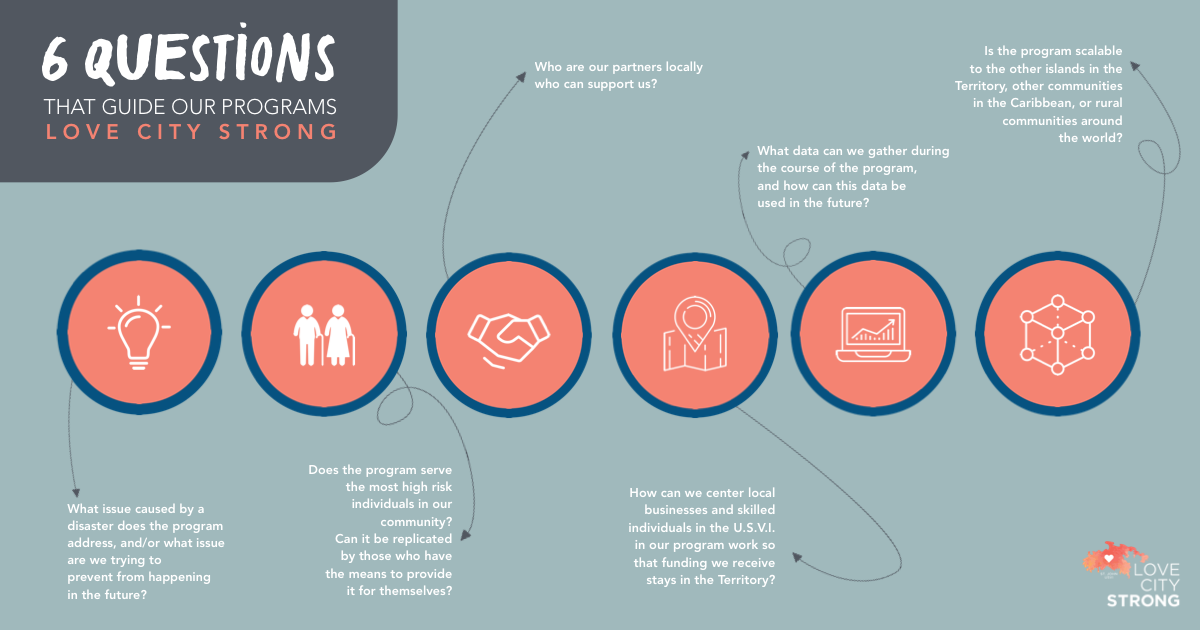
- What issue caused by a disaster does the program address, and/or what issue are we trying to prevent from happening in the future?
- Does the program serve the most high risk individuals in our community, and can it be replicated by those who have the means to provide it for themselves?
- Who are our partners locally that can support us?
- How can we center local businesses and skilled individuals in the U.S.V.I. in our program work so that funding we receive stays in the territory?
- What data can we gather during the course of the program, and how can this data be used in the future?
- Is the program scalable to the other islands in the territory, other communities in the Caribbean, or rural communities globally?
- We are addressing the massive loss in permanent low and middle income housing suffered as a result of Hurricanes Irma and Maria. Moreover, we want to rebuild homes so that they’re more storm resilient in the future.
- The program serves seniors, families with children and infants, and individuals with a disability or a chronic health condition. All of our clients are typically underserved by existing hurricane recovery/rebuild programs.
- We identified the St. John Community Foundation to help us with case management and All Hands and Hearts (who were on an extended mission in the USVI at the time) to help with on-site labor via their volunteers.
- We hired St. John-based construction companies and licensed contractors to perform all rebuild work, purchased our supplementary tools and equipment from businesses on St. John and St. Thomas when possible, and ordered building materials either from local suppliers or from Puerto Rico.
- We keep track of all of our expenses for each site to help federal partners like FEMA. This facilitates a better understanding of the true cost of housing rebuild on St. John; factoring in volunteer labor, shipping, and more.
- With local case management who live in and are a part of the community that they serve; strong partnerships with local contractors and suppliers; and access to both private and government funding, this program can be replicated in communities similar to St. John.
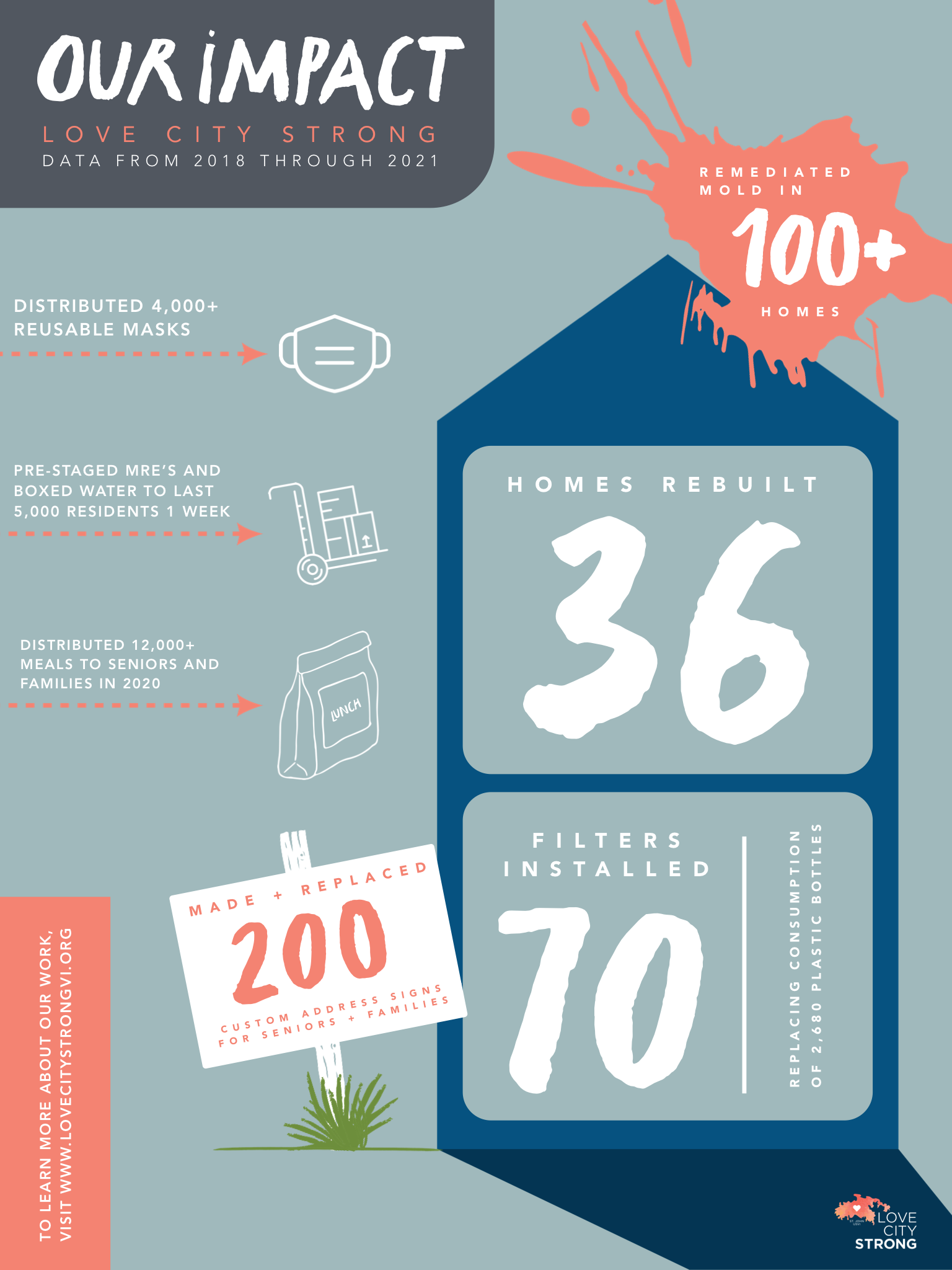
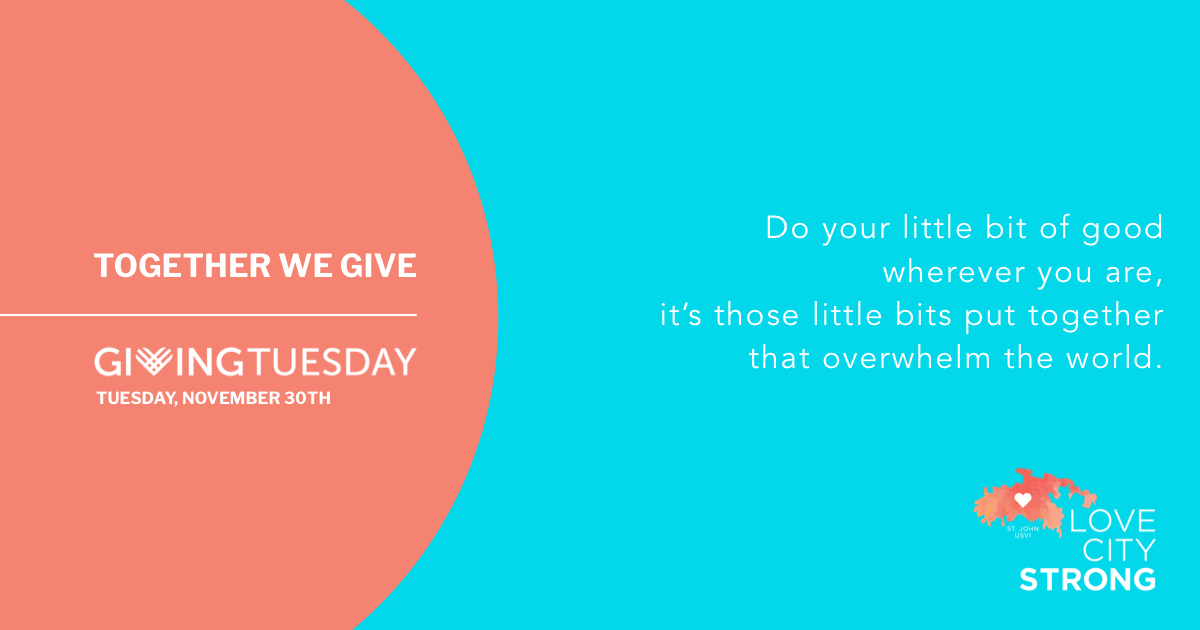
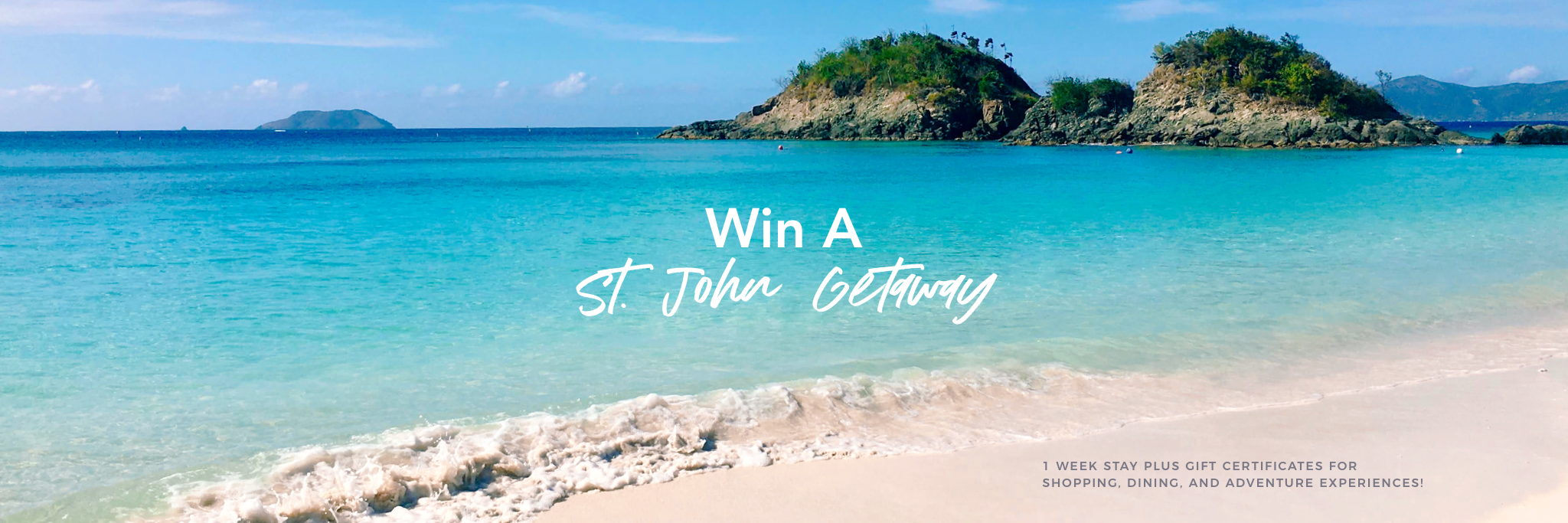
As many of you know, the Tuesday after Thanksgiving is known as Giving Tuesday – a global generosity movement unleashing the power of people and organizations to transform their communities and the world.
This year, as part of our Giving Tuesday fundraising efforts, Love City Strong has put together a “St. John Getaway” raffle, which launched on November 1st. The prize package includes accommodations (a week’s stay for 2 at the new Wharfside Village Hotel), discounted rental from Slim Man’s Jeep Rental, lots of activities options, plus over $1000 of gift certificates for dining and shopping.
We’re excited to be able to offer a chance to win this fun and comprehensive vacation package while raising money to support our ongoing disaster preparedness, disaster response, recovery, and mitigation efforts here on St. John and across the USVI. To learn more about the work that we do, please visit our website.
The complete prize list includes:
Accomodations: A week stay at Wharfside Village Hotel – King Size room (2 Guests)Transportation: Discounted rental from Slim Man’s Jeep Rental
Dining: Morgan’s Mango – $200.00 Gift Certificate 18’64’ The Restaurant – $250.00 Gift Certificate North Shore Deli – $100.00 Gift Certificate St. John Scoops – $50.00 Gift Certificate Kati Ligo – A specialty cheese board and 2 glasses of wine, valued at $60 Trunk Bay Concessions – $100.00 Gift Certificate
Activities: Cabana Day at Lovango Resort & Beach Club Sunset Sail with Big Blue Excursions Half Day Snorkel Sail for 2 aboard Kekoa 2 hr LimeOut Taco Shuttle with Salt Deck
Shopping: Lulee St. John- $100.00 Gift Certificate VirginAbis- $100.00 Gift Certificate The Tap Room “Brewtique”- $75.00 Gift Certificate
The prize drawing will take place on December 1st (the day after Giving Tuesday). Enter today for your chance to win a trip to St. John!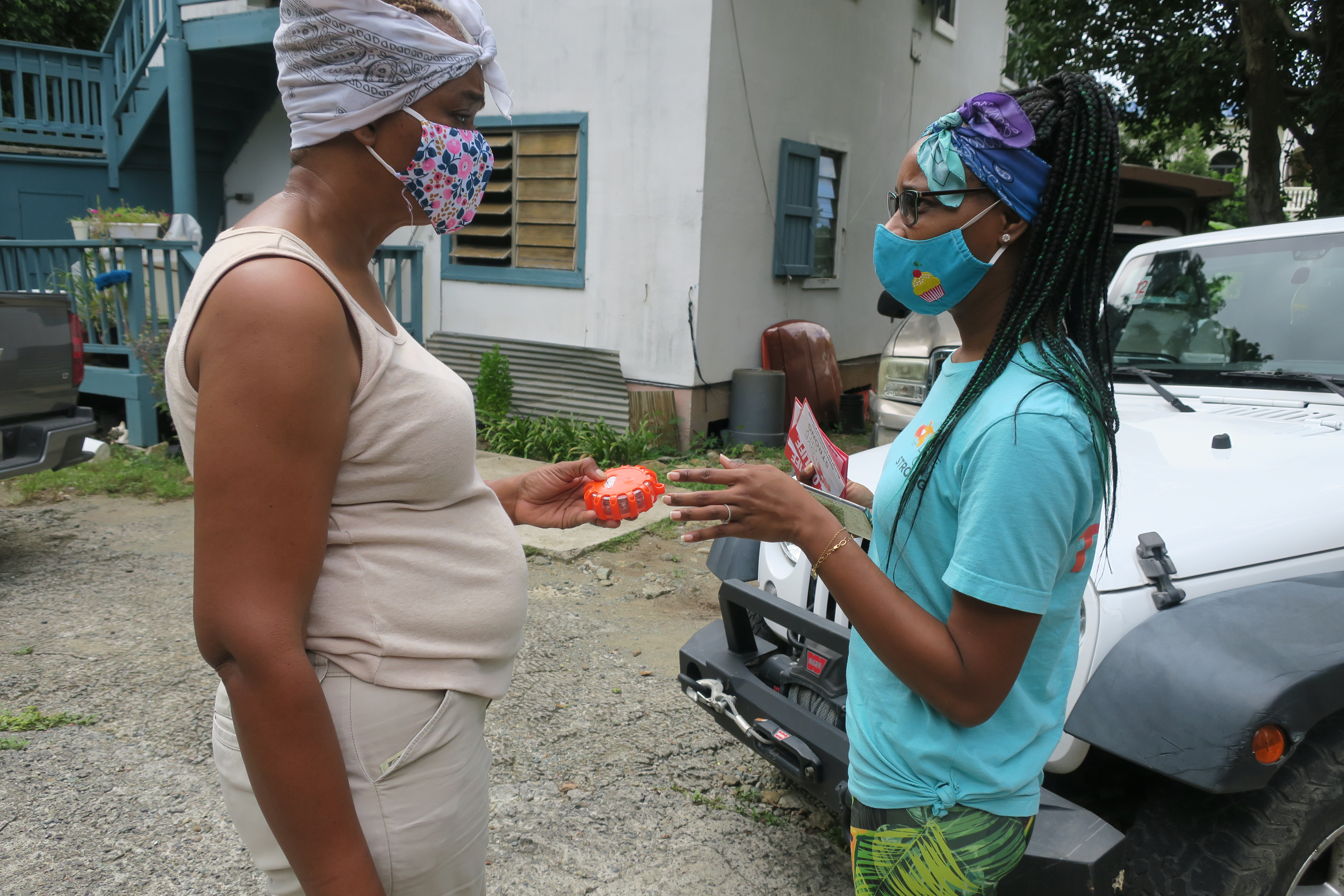
2021 Prospectus
This month Love City Strong is excited to share our updated 2021 Prospectus.
This document outlines our organizational priorities and ongoing projects, including COVID-19 response and our continued efforts supporting vaccinations on St. John. In 2020, we shifted this document from its previous physical form to a living, online version in order to reach a larger audience.
What is a Prospectus?
A prospectus is a document that describes a school, organization, or potential project in order to attract or inform clients, buyers, or investors. For our purposes, the prospectus is a part of our efforts to keep our current and potential donors engaged in our activities and plans for the future.
What is included in the Prospectus?
The document revisits our core mission and values as an organization. In addition, it breaks down our accomplishments and upcoming goals for each of our ongoing projects. It specifies the impact that our projects have had on the community, highlighting measurable outcomes and progress. Finally, it identifies tangible results tied to various donation amounts, in each project area.
How can I help?
This year, the Caribbean faces yet another active hurricane season, and based on recent evidence we know that storms are coming through more often and with more intensity. Community preparedness, which is at the core of the Love City Strong mission, is more important than ever.
If St. John holds a special place in your heart and you’re emotionally invested in our recovery from Hurricanes Irma and Maria and the COVID-19 pandemic, please take a few moments to read through this year’s Prospectus and share it with your friends and family!
If you are able, consider making a donation, or sign up as a monthly donor, to help us build a stronger and more resilient community as we continue to recover.
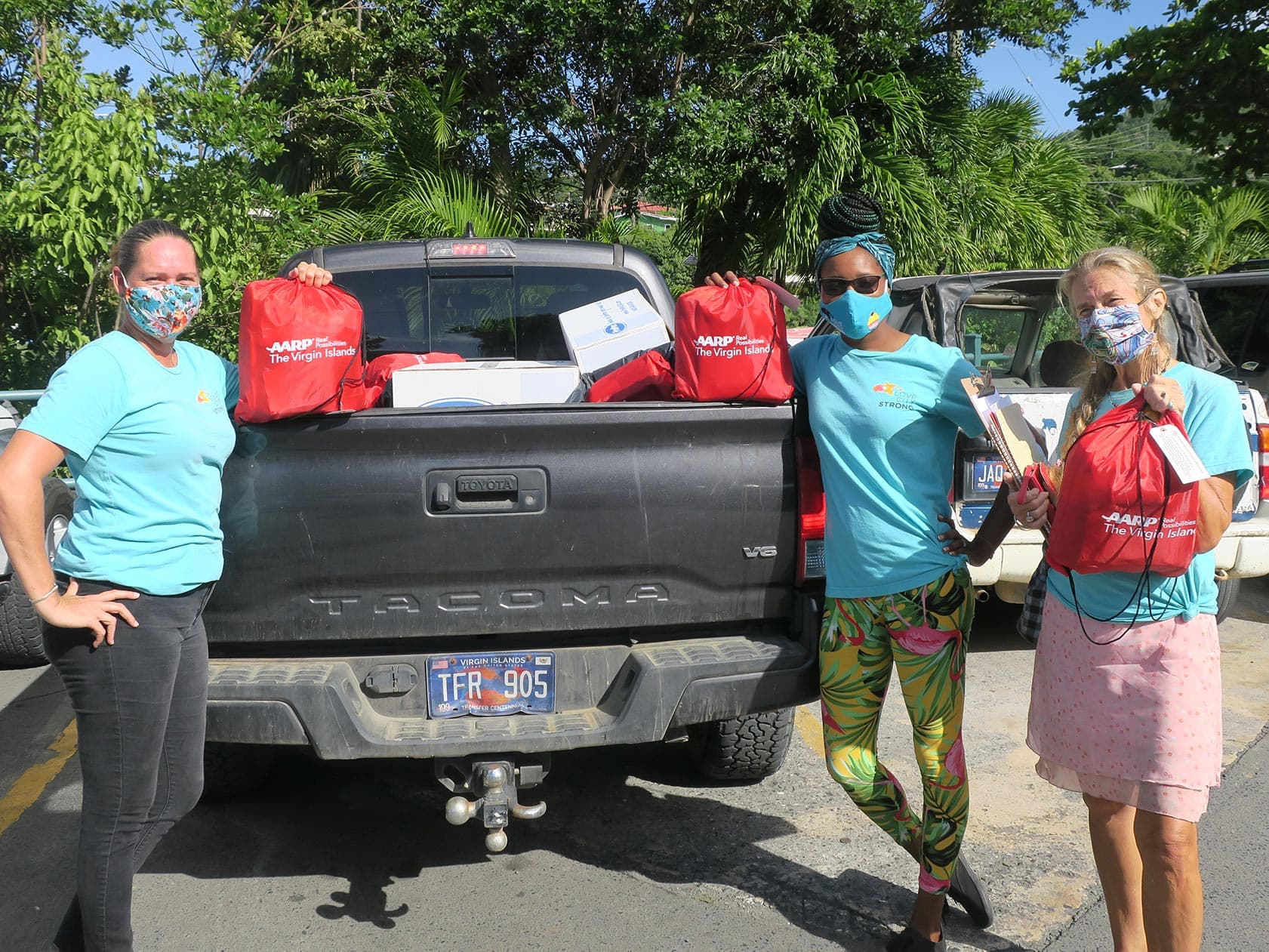
- Donate money directly to trusted, well-established nonprofit organizations with ties to the community. Use free websites like GuideStar and Global Giving to get background information on them, and ensure that they will be good stewards of your generosity.
- Use Go Fund Me or Facebook fundraisers to support individuals or families. Avoid using these platforms to donate to nonprofits, as they create another layer of complication in the giving process. There can be hidden fees and long delays in funding disbursement.


